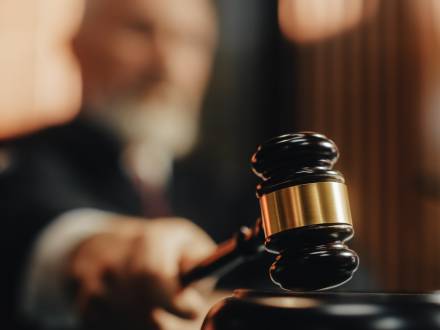
What Is the Clean Slate Rule?
The term “clean slate rule” can refer to two distinct legal concepts, depending on the context: a doctrine in criminal procedure regarding retrials after a conviction is overturned, and legislative policies aimed at expunging or sealing criminal records. Here’s a breakdown of both meanings:
1. Clean Slate Rule in Criminal Procedure
The clean slate rule is a legal doctrine that applies when a defendant’s conviction is overturned on appeal. If a person is found guilty, appeals, and wins a reversal of their conviction, they can be retried for the same crime without violating the double jeopardy prohibition. In this scenario, the previous trial is treated as if it never happened, and the defendant starts the new trial with a “clean slate”—meaning the prosecution and defense can present their cases anew, and prior findings do not carry over.
For example, if someone is convicted of robbery, appeals, and the conviction is reversed due to legal errors, the state can retry the person for robbery. The new trial is not considered double jeopardy because the original conviction was nullified by the appeal.
Implications and Benefits of the Clean Slate Rule
1. For Criminal Procedure (Retrials)
-
Fairness in Justice: The clean slate rule ensures that if a defendant’s conviction is overturned due to procedural errors, legal mistakes, or new evidence, they are not prejudiced in a new trial. The prosecution and defense start fresh, and the jury is not influenced by the previous conviction.
-
Upholding Rights: This rule reinforces the right to a fair trial by correcting past injustices without penalizing the defendant for exercising their right to appeal.
-
Judicial Efficiency: It allows the legal process to address errors without dismissing the possibility of justice being served through a retrial.
2. For Clean Slate Laws (Expungement/Sealing)
-
Second Chances: These laws recognize that people can change. By sealing or expunging old records, individuals are given a genuine opportunity to rebuild their lives.
-
Economic and Social Benefits: People with cleared records can access better jobs, housing, and educational opportunities, reducing recidivism and benefiting society as a whole.
-
Reduced Stigma: Removing the visibility of past convictions helps reduce the stigma and discrimination faced by former offenders.
Criticisms and Challenges
1. Criminal Procedure Doctrine
-
Prosecutorial Power: Some critics argue that allowing retrials gives prosecutors too much power, potentially leading to repeated prosecutions until a conviction is secured.
-
Emotional Toll: Retrials can be emotionally and financially taxing for both defendants and victims.
2. Clean Slate Laws
-
Public Safety Concerns: Opponents worry that sealing records might allow individuals with relevant criminal histories to work in sensitive positions (e.g., with children or vulnerable adults).
-
Complex Eligibility: The laws can be complicated, with many exceptions and requirements that may confuse or exclude deserving individuals.
-
Access for Law Enforcement: Even when records are sealed, law enforcement and some agencies may still access them, raising questions about the true extent of a “clean slate.”
2. Clean Slate Laws (Expungement and Record Sealing)
Separately, “clean slate” also refers to modern legislative initiatives—often called clean slate laws or second chance laws—that allow individuals with certain criminal records to have those records sealed or expunged after meeting specific criteria. The aim is to help people move on from past mistakes and reduce barriers to employment, housing, and education.
Key features of clean slate laws:
-
Automatic or Petition-Based Relief: Some jurisdictions automatically seal eligible records after a waiting period, while others require individuals to petition the court.
-
Eligibility Criteria: Typically, only non-violent offenses or minor convictions are eligible. Serious crimes (like murder or sex offenses) are excluded.
-
Waiting Periods: There is usually a required period after completion of sentence or probation (e.g., three years for misdemeanors, eight years for felonies in New York).
-
Effect: Once a record is sealed or expunged, it is no longer accessible to most employers or the public, though law enforcement and certain agencies may still have access.
In New York, for example, the Clean Slate Act will automatically seal certain criminal records after a waiting period, provided the individual has remained crime-free and is not on probation or parole. However, those with serious convictions or pending charges are ineligible.
Summary Table: Two Meanings of the Clean Slate Rule
| Context | Description | Purpose |
|---|---|---|
| Criminal Procedure Doctrine | Allows retrial after conviction is reversed on appeal without double jeopardy | Ensures fair retrials after legal errors |
| Clean Slate Laws/Policies | Seals or expunges eligible criminal records after criteria are met | Promotes rehabilitation and reintegration |
Conclusion
The “clean slate rule” can refer to a legal doctrine that permits retrials after a conviction is overturned, or to modern laws that expunge or seal criminal records to help individuals move forward. In both cases, the underlying principle is to provide a fair opportunity for a fresh start—either in the courtroom or in society.
